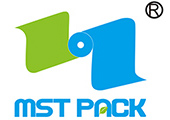
Privacy statement: Your privacy is very important to Us. Our company promises not to disclose your personal information to any external company with out your explicit permission.
PFAS, or Per- and Polyfluoroalkyl Substances, are a group of man-made chemicals that have been widely used in various industrial and consumer products. These substances are characterized by their unique chemical structure, which includes chains of carbon atoms bonded to fluorine atoms. PFAS are valued for their ability to repel water, oil, and stains, making them common ingredients in products like non-stick cookware, stain-resistant fabrics, firefighting foams, and food packaging materials.
However, PFAS have raised significant environmental and health concerns due to their persistence, bioaccumulation, and potential toxicity. These chemicals do not break down easily in the environment and can accumulate in soil, water, wildlife, and human tissues over time.
The U.S. Environmental Protection Agency's (EPA) assessment of the toxicity of PFAS found that exposure to high concentrations of certain PFAS may cause cancer, compromised immune systems, reproductive problems, and other health effects.
Examples include paper packaging such as burger wrappers and baking paper, which may have coatings that repel oil or water penetration. Disposable food containers, plastic food packaging and microwave-safe containers may also use PFAS-containing coatings to prevent leaks or sticking. In addition, packaging of liquid foods, such as cooking oils, salad dressings, and sauces, can use PFAS-containing materials to prevent oil leakage. Fast food packaging, including paper bags, wrappers, cardboard boxes and napkins, often contain PFAS to make them more resistant to oil and water
Therefore, we usually use degradable or recyclable materials to replace Food Packaging Bags made of PFAS materials.
Biodegradable or Recyclable Packaging Bags offer several benefits for both the environment and consumers. Firstly, they reduce the accumulation of non-biodegradable waste in landfills, helping to mitigate environmental pollution. Secondly, these bags contribute to the conservation of natural resources by promoting the use of renewable materials or materials that can be easily recycled. Thirdly, they support sustainable practices by encouraging the adoption of eco-friendly alternatives in the packaging industry.
MSTPak Coffee provides a complete set of recyclable Coffee Packaging Solutions.
Contact our team to learn more about Recyclable Coffee Bags.

Mr. Michael Shea
Tel:
86-750-8990560
Fax:
86-750-8990560
E-mail:
Related Products List
Mobile Site


Privacy statement: Your privacy is very important to Us. Our company promises not to disclose your personal information to any external company with out your explicit permission.

Fill in more information so that we can get in touch with you faster
Privacy statement: Your privacy is very important to Us. Our company promises not to disclose your personal information to any external company with out your explicit permission.